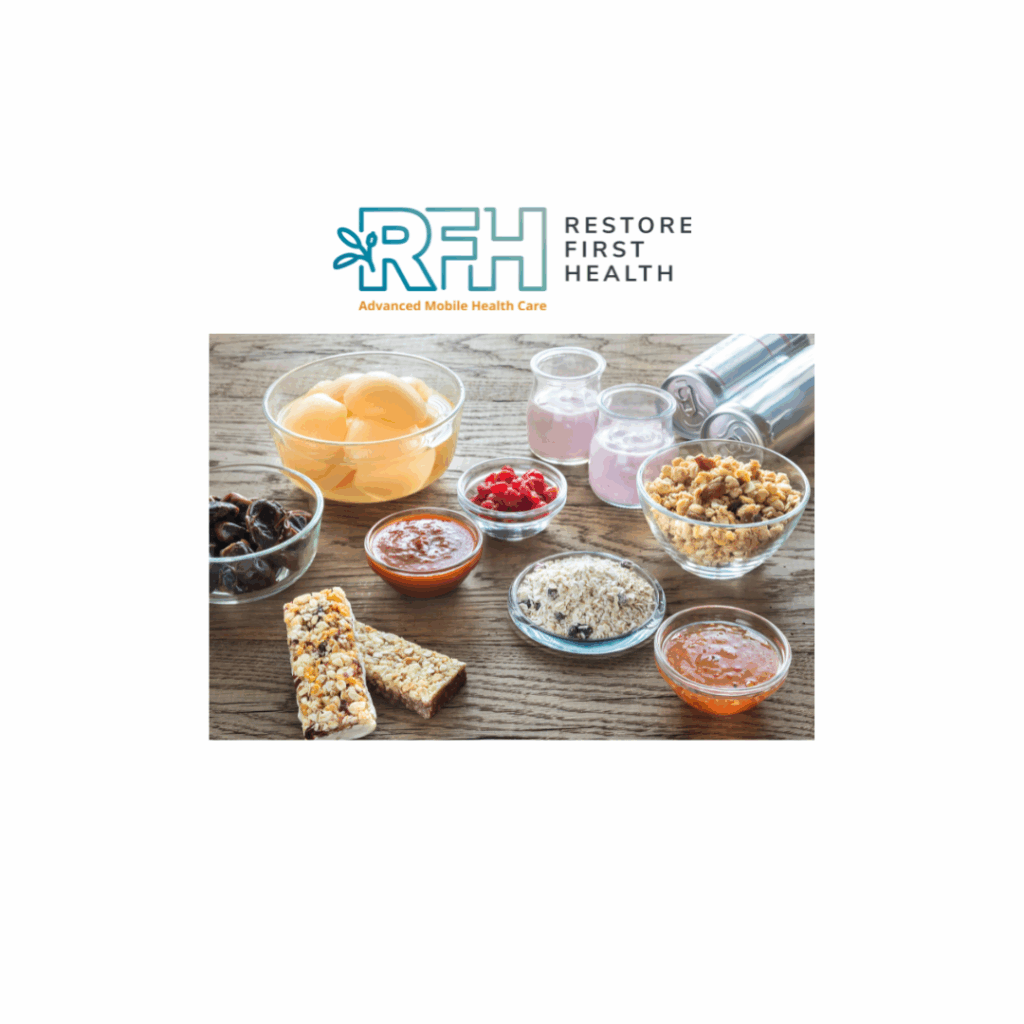If you’re managing a chronic wound, diabetes, or lymphedema, what’s in your pantry matters more than you think.
The holidays make it easy to stock up on comfort foods that taste great but quietly work against your body’s ability to repair itself.
Here’s a quick look at common hidden ingredients that slow down healing—and simple swaps that actually help your body recover faster.
1. Added Sugars
Hiding in: sauces, dressings, flavored yogurts, “low-fat” snacks, and even oatmeal packets.
Why it slows healing:
Added sugars spike blood glucose levels, increase inflammation, and make it harder for your body to build new tissue. For someone already struggling with circulation or diabetes, that means wounds stay open longer and infections are more likely.
Swap with instead:
- Unsweetened applesauce or cinnamon for sweetness
- Fresh fruit instead of flavored yogurt
- Seltzer with lime instead of soda
Proof it matters:
A 2023 Frontiers in Nutrition study found that added sugar increases inflammation and delays wound closure. Read the study
2. Refined Carbs
Hiding in: white bread, pastries, crackers, and pre-made holiday rolls.
Why it slows healing:
Refined flour turns to sugar fast, which causes the same spikes and inflammation as sweets. It also contributes to poor circulation—one of the biggest barriers to wound healing.
Swap with instead:
- Whole grain or sprouted grain breads
- Brown rice or quinoa
- Oat flour or almond flour when baking
According to the Australian Diabetes Educators Association, steady blood sugar from complex carbs helps wounds heal more effectively. Read more here
3. Hidden Sodium
Hiding in: canned soups, gravy mixes, deli meats, and marinades.
Why it slows healing:
Too much sodium causes the body to hold onto water, which increases swelling and slows circulation. For people with lymphedema or venous disease, this can make symptoms worse and delay recovery.
Swap with instead:
- Choose “low-sodium” or “no salt added” labels
- Rinse canned beans or vegetables before cooking
- Use fresh herbs, citrus, or garlic for flavor instead of salt
4. Trans Fats and Hydrogenated Oils
Hiding in: processed snacks, margarine, shortening, and shelf-stable baked goods.
Why it slows healing:
These fats increase inflammation and reduce oxygen delivery to tissues, both of which are critical for wound recovery.
Swap with instead:
- Olive oil, canola oil, or avocado oil for cooking
- Baked or air-fried snacks instead of fried foods
5. Alcohol and Sugary Drinks
Hiding in: mixed cocktails, juices, sweetened tea, and soda.
Why it slows healing:
Alcohol and sugar interfere with immune function and hydration. High sugar intake makes collagen repair slower, which means wounds take longer to close.
Swap with instead:
- Sparkling water with lemon or berries
- Unsweetened iced tea
- A splash of fruit juice in water for flavor
Research shows that excess alcohol and sugar intake directly reduce collagen formation and immune response. Learn more here
Bottom Line
Healing isn’t just about the right medication or dressing it’s about giving your body what it needs to do the work. Stable blood sugar, balanced salt, and the right fats and proteins all help tissues repair and strengthen.
If you’re living with a chronic wound or complex condition, the right care plan should look at your whole health, including what’s in your kitchen.
